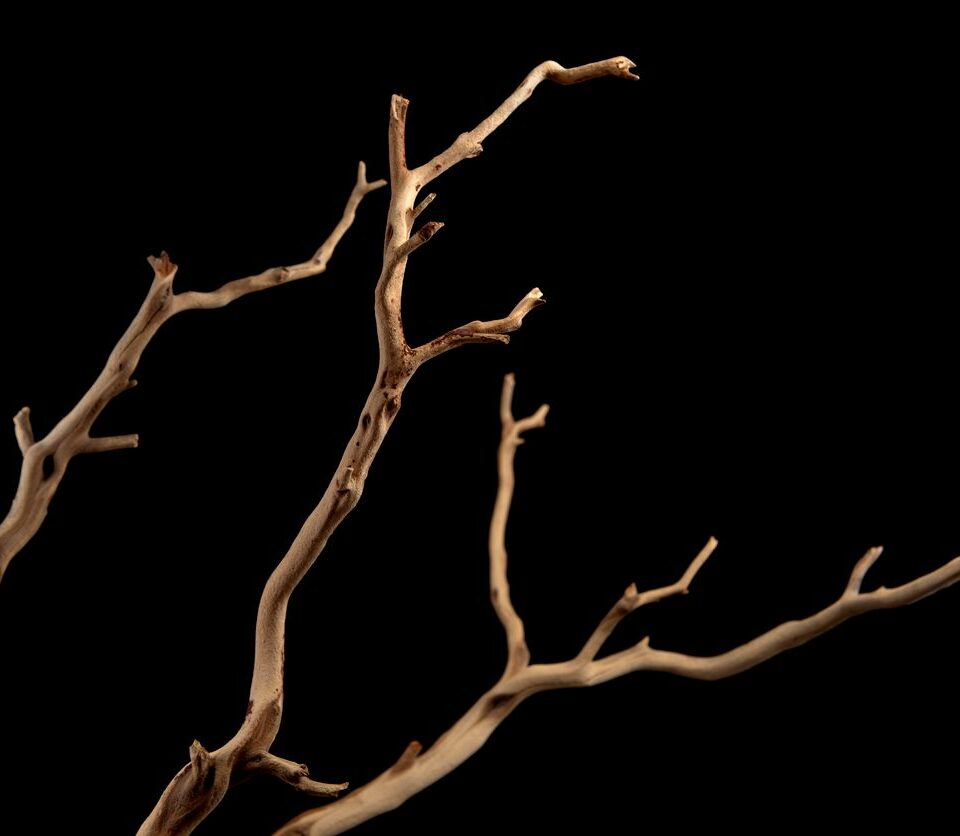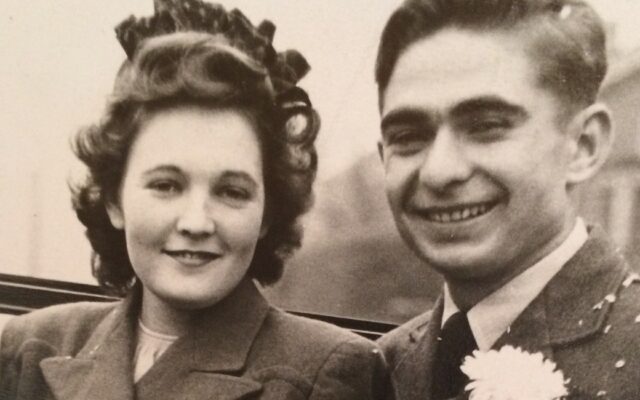Under a forensics lamp, a squad of professionals were packing away their cutters and pouring water over their hands, while the chief took photos of the amputated body. In the apartments over the wall, a woman stood on her balcony, arms folded, no hint of gratitude for her new corridor of sunlight. She finished her cigarette and turned away.
As I gazed sheepishly upwards, I was shocked by the efficiency of vandalism: too late now to suggest that, maybe, they had gone a little too far. Where boughs had once scooped thousands of leaves into the sky, forming a golden honeycomb that hummed in the breeze on summer afternoons, they now just looked like scissors, threatening to slit the sky. And they made no sound at all.
Earlier that day, I’d observed the tree squad as it launched a military offensive. The chief donned his helmet and scouted the summits, lassoing the farthest branches with mountaineering ropes so that, once cut, they swung harmlessly into the trunk and away from our neighbours’ windows. Two men on the ground gripped the other end of the rope and dug their heels into the earth, ready to counterbalance each shift in weight and keep their leader suspended like a ballerina, while the fourth man fed the branches into a buzzing wood cutter then carried buckets of chippings to the truck parked out front.
In six hours flat, they pulverised 24 months of grown wood into a pile of damp smoky grain. I’d seen enough after ten minutes, slipped the Times under my arm and left for the office. I’d made them coffee and that was my limit.
The trails of ivy have survived. Now they are free to wind further up the trunk, stretching their gauze over bruised shoulders. By spring they will have wrapped the amputee from head to toe. Does the ivy warm and soothe its host, or might the branches feel something more ominous, a slow constriction around their slender necks? If nature is symbiosis, I wonder what’s in it for the tree.
‘Bark’ doesn’t describe its outermost layer, which more resembles a soft dry skin, like the back of my ageing hands, gently criss-crossed by a lattice of creases. The ivy conceals the knots halfway up the trunk, making it smooth and freckled. A few branches defy the vertical salute of the scissors, suggesting curves that are half-interrupted but destined to follow their course. That’s what I hope.
I ask myself whether the trunk can still feel its amputated limbs. Some scientists will tell you it can: humans have no monopoly on consciousness, which, serving no evolutionary purpose, is little more than a rolling 24/7 news bulletin that informs us, second by second, what our intuitions have already commanded us to do. “I need a coffee,” announces the anchor-man in the studio of our mind, milliseconds after our neurons and muscles have already propelled us to the kitchen, following god-only-knows whose orders.
In a world where free will is a comforting delusion, consciousness tells us we’re still the boss. And if that function is not essential to our survival, then it might be present in all things, from water to stones and trees. We can no more imagine what it feels like to be a tree than we can read our dogs’ thoughts when they hold our gaze, but we might accept that consciousness is there, somewhere above and below the bark and branches, just as our own sense of awareness floats somewhere outside of our heads.
My shame is deepened by the quiet efficiency of a hit job that I never had to witness. If the pruner’s fingers are green, mine are black with the newsprint of a morning’s grappling with our moral demise and then the smudged ink as I write it all over again. It pays for the gardeners, plumbers and electricians, and keeps me safe from a world I don’t understand.
My trauma was predictable. Our tree went under the knife just days after I’d read The Overstory by Richard Powers – not so much a rallying cry to save the planet as a humiliating exposé of our divorce from nature. Every page bore the name of a tree I’d never heard of; I struggled to list any species beyond the handful I’d learned as a kid. While Brazil’s president gleefully burns through his country’s forests, Powers reminds us that all human life is entwined with the roots and branches of our quiet neighbours. Much more than the survival of our eco-system is at stake; it’s a struggle to remember who we are.
Even today, looking out from our kitchen window, I cannot tell you the name of our tree. We’ve shared a modest plot of land for a decade now, and still I know nothing of its family history or the events that brought it here. Even as it pulses with life, miming the drama of the seasons, I can only smile dumbly from our table, proud of this ornament and the admiration it might draw from my friends.
It’s here that my shame morphs into a secret pleasure. Clipped and clean, my tree is a masterpiece of minimalism, punctuating the December sky like Japanese calligraphy. I created this, whispers my pride. I commissioned this statue, carved out of wood, so that it might stand in harmony with the rectangles of gravel and squares of bamboo that structure the garden. Nature tamed; order restored. But my pretensions ring hollow. We had the tree lopped because our neighbours complained of disappearing light: the tips of the longest branches were almost touching their windows. There was no design here.
It’s hard to enjoy a cigarette beneath an uncomplaining tree and not wonder what’s going on. Drawing smoke into my lungs, I turn to the trunk and imagine what moves beneath its skin: rivulets of sap coursing up and down the half-sawn limbs to feed the fibres that will spurt again next spring; not so much the promise of new life as life never-ending; no hibernation but hidden work, humble and unsung. The tree steadies itself for next year’s blooms and ravages, and possibly its 200th summer if my gardener’s guess is right.
I say all this to the tree before writing it down. We’re still not on first-name terms but I sense that events have drawn us a little closer. I’ve accepted that we can’t go on like this, living in each other’s shadows but never exchanging a word. The gardener has promised me a green explosion next spring: “She’ll take just as much light from the sun and just as many nutrients from the soil. But now she has a smaller body to feed, and that means she’ll only grow more quickly. Next spring you’ll be amazed by all the leaves. Trust me: you’ll see more of them than ever before.”
And what will I have to offer?









